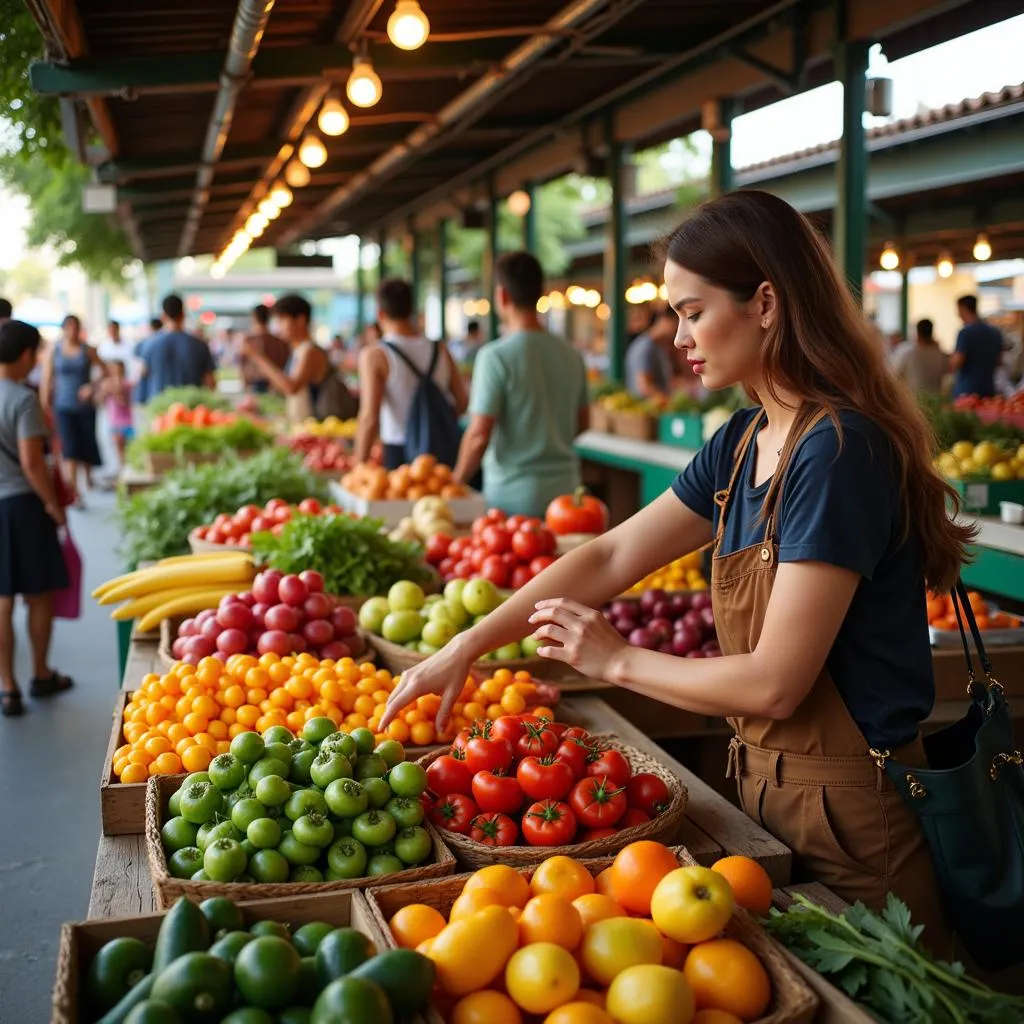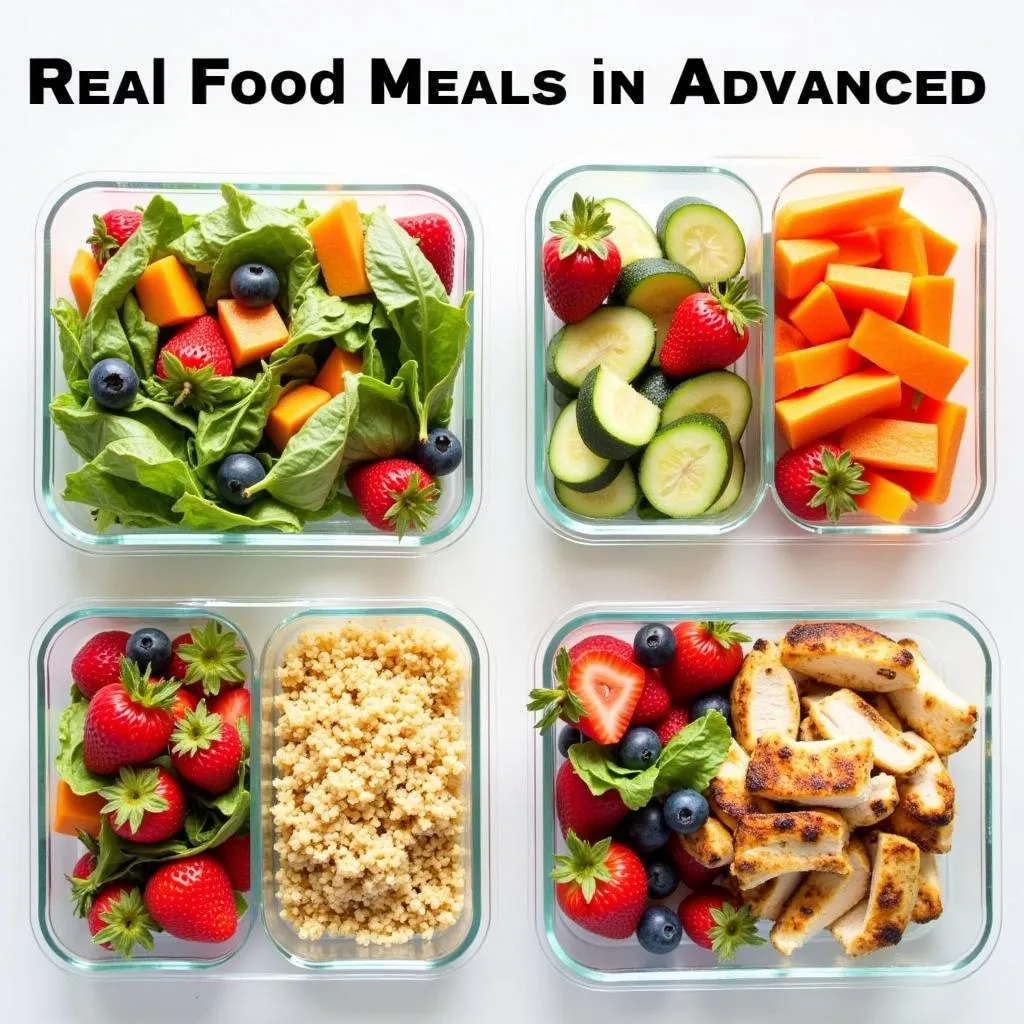In a world of instant gratification and convenience foods, it’s easy to lose sight of the importance of “getting real foods” into your diet. We’re constantly bombarded with processed options, tempting our taste buds but often leaving us feeling unsatisfied and, worse, deficient in essential nutrients.
Why Choose Real Foods?
Opting for real foods is about more than just jumping on the latest health trend; it’s about making a conscious decision to nourish your body with the goodness it deserves. Here’s why this shift matters:
- Nutrient Powerhouse: Real foods are brimming with vitamins, minerals, and antioxidants that are vital for optimal health. They provide the building blocks for strong bones, a robust immune system, and increased energy levels. Processed foods, on the other hand, are often stripped of these vital nutrients during processing.
- Weight Management: Real foods tend to be naturally lower in calories and higher in fiber, keeping you feeling fuller for longer and aiding in weight management. Conversely, processed foods, laden with unhealthy fats, sugars, and artificial additives, can contribute to unwanted weight gain.
- Improved Digestion: The fiber content in real foods promotes healthy digestion and regularity. A diet rich in fruits, vegetables, and whole grains ensures your digestive system functions at its best.
- Reduced Risk of Chronic Diseases: Studies have shown a strong correlation between diets high in processed foods and an increased risk of chronic diseases such as heart disease, type 2 diabetes, and certain types of cancer. Choosing real foods helps mitigate these risks and supports long-term health.
 Selecting Fresh Produce at a Farmers Market
Selecting Fresh Produce at a Farmers Market
Identifying Real Foods: A Simple Guide
Navigating the grocery store aisles can feel overwhelming, but distinguishing real foods from their processed counterparts is easier than you think. Here’s what to look for:
- Whole, Unprocessed Options: Think fruits, vegetables, legumes, nuts, seeds, whole grains, and lean proteins. These foods are closest to their natural state, minimally processed, and free from artificial ingredients.
- Short Ingredient Lists: Real foods don’t need a laundry list of ingredients. When checking labels, opt for products with recognizable ingredients that you can easily pronounce.
- Limited Added Sugars, Sodium, and Unhealthy Fats: Be mindful of hidden sugars, excessive sodium, and unhealthy fats lurking in processed foods. Choose products with lower amounts of these ingredients or, better yet, prepare meals at home where you have complete control over what goes into your food.
Transitioning to a Real Food Lifestyle
Embracing a real food lifestyle doesn’t require a complete dietary overhaul overnight. Start with small, manageable changes and gradually incorporate more real foods into your daily routine:
- Cook More Meals at Home: Preparing meals at home allows you to control the quality of ingredients and avoid hidden additives.
- Shop the Perimeter of the Grocery Store: This is where you’ll typically find fresh produce, lean proteins, and dairy products.
- Experiment with New Recipes: Don’t be afraid to get creative in the kitchen! There’s a world of delicious and healthy recipes featuring real food ingredients waiting to be discovered.
- Pack Your Own Snacks: Ditch the processed snack foods and opt for nutrient-rich alternatives like fruits, vegetables, nuts, or yogurt.
- Stay Hydrated: Don’t underestimate the power of water! It aids in digestion, nutrient absorption, and overall bodily functions.
 Family Sharing a Home-Cooked Meal
Family Sharing a Home-Cooked Meal
Real Food Doesn’t Mean Perfect
Remember, making sustainable changes to your diet is a journey, not a race. It’s okay to enjoy your favorite treats in moderation. The key is to prioritize real, whole foods as the foundation of your diet and make healthier choices most of the time.
For delicious and nutritious recipes featuring real foods, check out our collection of better body foods recipes.
Real Food, Real Results
“Switching to a real food-based diet was the best decision I ever made,” shares Sarah Jones, a registered dietitian. “My clients see a remarkable difference in their energy levels, digestion, and overall well-being when they prioritize real foods.”
By making conscious choices about the foods we consume, we not only nourish our bodies but also invest in our long-term health and vitality. So ditch the processed and embrace the power of real foods for a healthier, happier you.
FAQs about Real Foods
1. Are all processed foods bad?
Not all processed foods are created equal. Some, like frozen fruits and vegetables, can be convenient and nutritious options. The key is to choose minimally processed foods with short ingredient lists and avoid those high in added sugars, sodium, and unhealthy fats.
2. Is it expensive to eat real foods?
Eating real foods doesn’t have to break the bank. Planning meals in advance, buying seasonal produce, and opting for less expensive protein sources like beans and lentils are great ways to make healthy eating more affordable. Check out our key food sale this week for budget-friendly options.
3. I have a busy lifestyle. How can I find time to cook real food meals?
Batch cooking on weekends, utilizing your slow cooker, and prepping ingredients in advance are time-saving strategies for incorporating more home-cooked meals into your routine.
 Meal Prep Containers Filled with Nutritious Food
Meal Prep Containers Filled with Nutritious Food
Need Help Getting Started with Real Foods?
Contact us at Phone Number: 02437655121, Email: [email protected] or visit us at 3PGH+8R9, ĐT70A, thôn Trung, Bắc Từ Liêm, Hà Nội, Việt Nam. Our dedicated customer support team is available 24/7 to assist you.
For more insights on incorporating real foods into your diet, explore our articles on highest calorie keto foods and organic and gluten-free foods. We’re here to support your journey towards a healthier, happier you!